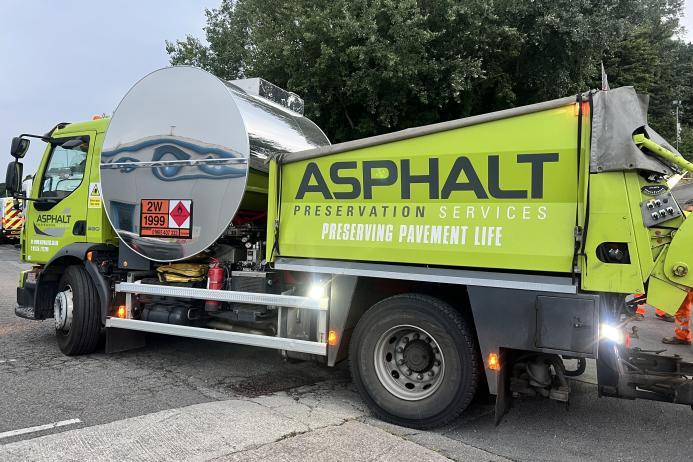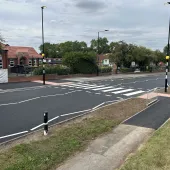Asphalt Group launch plan to deliver roads that last longer
Road repair specialist creates five-point action plan designed to combat declining condition of UK’s roads
ROAD repair specialists Asphalt Group Ltd have put forward a series of recommendations to help make roads last longer after it was revealed that the backlog for road repairs in England and Wales has reached almost £17 billion.
According to the latest Annual Local Authority Road Maintenance (ALARM) report from the Asphalt Industry Alliance (AIA), more than half of the road network (52%) – around 106,000 miles – is reported to have less than 15 years structural life remaining. Almost a third of this number – 34,600 miles or one in six of the total – has only up to five years life left.
Asphalt Group have put forward a five-point action plan to combat the declining condition of the UK’s roads. The company is calling for the following actions to be implemented:
Provide long-term and ring-fenced funding for local councils so they can deliver longer-lasting roads
Highlight the social and economic benefits of roads that are fit for purpose. Valued at approximately £400 billion, the local highway network is the largest and most visible community asset for which local highway authorities are responsible
Better collaboration across central and local government along with the supply chain to accelerate the transition to sustainable, better roads
Prioritize the safety of drivers, cyclists, and bikers which is currently being put at risk because of poorly maintained roads
Move the narrative away from potholes and instead focus on asset management and solutions which extend the life of roads.
Asphalt Group managing director Stephen Cooke said: ‘We cannot go on like this; things need to change. For a long time, the sector has called for longer-term funding so that councils can plan their road maintenance and ensure that roads last longer.
‘In order to ensure the resilience of the transport network, focus needs to be put on using solutions such as preservation that will reinforce the asphalt and make roads last longer, reducing costs and improving efficiencies. The process can preserve the same asset [road surface] to extend its life for years. Asset management is all about extending the life of the asset, so instead of filling in potholes, engineers have the solutions to make roads last longer.
‘After all, there are several social, economic, safety, and environmental benefits that are brought about through building a longer lasting road network. Our action plan sets out what needs to be prioritized and we stand ready to deliver on this.’
The findings of ALARM 2025, which relate to the 2024/25 financial year, show that English and Welsh local authorities need an extra £7.4 million each to maintain the network to their target conditions. £16.81 billion is now reported to be required, as a one-off, for local authorities to bring the network up to their ‘ideal’ conditions.
Some 24,400 miles (12%) of the network are likely to need some form of maintenance in the next 12 months, but just 1.5% of the local road network was resurfaced in the last year with some 1.9 million potholes filled at a cost of £137.4 million.
Recently, the UK government has demanded that councils prove their progress on pothole repair, or face losing cash as a result.
From mid-April, local authorities in England will start to receive their share of £1.6 billion highway maintenance funding, including an extra £500 million to fill 7 million potholes a year.
But to get the full amount, all councils in England must publish annual progress reports. Local authorities who fail to meet these strict conditions will see 25% of the uplift (£125 million in total) withheld.
Stephen Cooke added: ‘Whilst it is right that councils are now being tasked with proving the progress they’re making with road repairs, they must also move away from a patch and mend philosophy.
‘Prevention is always better than cure. Making roads last longer will offer a societal win, saving huge amounts of tax-payers money.’
Asphalt Group recently achieved PAS 2080 verification, becoming one of the first companies in the highways sector to meet the environmental standard, covering all four businesses in the group – Reinforcement, Preservations, Surface Dressing, and Surfacing.
Stephen Cooke will be delivering a presentation entitled ‘PAS 2080 Specification for Whole Carbon in Infrastructure’ at the Road Surface Treatments Association’s Annual Conference, which takes place on 10 April at Celtic Manor, Newport, Wales.










